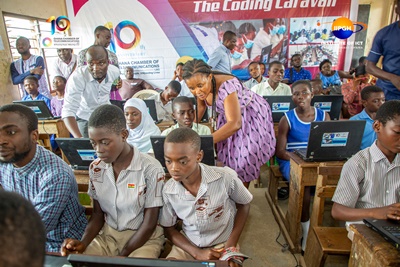
Maximizing Potential 16 Tips for Teaching Gifted Students
Understanding Giftedness
Gifted students possess exceptional intellectual abilities and potential that set them apart from their peers. However, identifying and meeting the needs of gifted learners can present unique challenges for educators. Understanding the characteristics and traits of giftedness is essential for providing effective support and instruction to these students.
Differentiation Strategies
One of the most crucial aspects of teaching gifted students is differentiation. Tailoring instruction to meet the unique learning needs and interests of gifted learners is essential for keeping them engaged and challenged. Provide opportunities for independent study, enrichment activities, and project-based learning to allow gifted students to explore topics in greater depth and complexity.
Encouraging Inquiry
Gifted students thrive on intellectual stimulation and exploration. Encourage curiosity and inquiry by fostering a classroom environment that values questioning, critical thinking, and problem-solving. Provide open-ended tasks, research projects, and opportunities for creative expression to stimulate gifted students’ intellectual curiosity and passion for learning.
Flexible Pacing
Gifted students often learn at a faster pace than their peers and may require accelerated instruction to prevent boredom and disengagement. Offer flexible pacing options, allowing gifted students to progress through material at their own rate. Provide opportunities for acceleration, such as compacting the curriculum, allowing students to skip redundant content, or offering advanced placement courses.
Promoting Collaboration
While gifted students may excel academically, they also benefit from opportunities to collaborate and interact with their peers. Foster a collaborative learning environment where gifted students can share their expertise, learn from others, and collaborate on projects and activities. Encourage peer mentoring, group discussions, and cooperative learning experiences to promote social-emotional development and teamwork skills.
Addressing Emotional Needs
Gifted students may experience unique social and emotional challenges related to their advanced intellectual abilities. They may feel isolated, misunderstood, or under pressure to perform at high levels consistently. Create a supportive classroom climate where gifted students feel accepted, valued, and understood. Provide opportunities for social-emotional learning, counseling support, and peer connections to address their emotional needs effectively.
Offering Choice
Empower gifted students by offering choice and autonomy in their learning. Allow them to pursue topics of interest, select assignments or projects that align with their strengths and passions, and make decisions about their learning pathways. Providing choice fosters a sense of ownership and agency, increasing motivation and engagement among gifted learners.
Encouraging Perseverance
Despite their intellectual abilities, gifted students may encounter challenges and setbacks in their academic journey. Encourage perseverance and resilience by modeling a growth mindset and emphasizing the value of effort, perseverance, and learning from failure. Teach gifted students coping strategies, problem-solving skills, and stress management techniques to help them navigate challenges effectively.
Creating Enrichment Opportunities
Gifted students thrive when provided with opportunities for enrichment and extension beyond the regular curriculum. Offer enrichment activities, such as guest speakers, field trips, competitions, and extracurricular programs, to challenge gifted students and nurture their interests and talents. Provide access to advanced resources, such as books, materials, and technology, to support their intellectual growth and development.
Fostering a Growth Mindset
Encourage gifted students to adopt a growth mindset by emphasizing the belief that intelligence and abilities can be developed through effort, practice, and learning. Teach them to embrace challenges, persist in the face of obstacles, and view mistakes as opportunities for growth and learning. By fostering a growth mindset, you empower gifted students to reach their full potential and become lifelong learners. Read more about 16 tips for teaching gifted students



